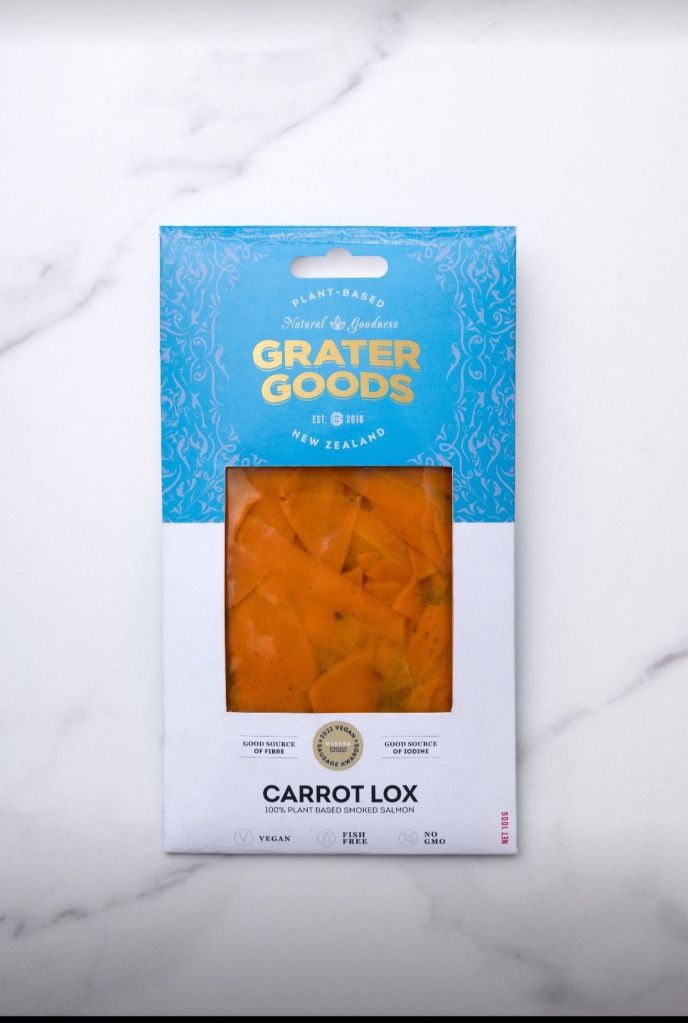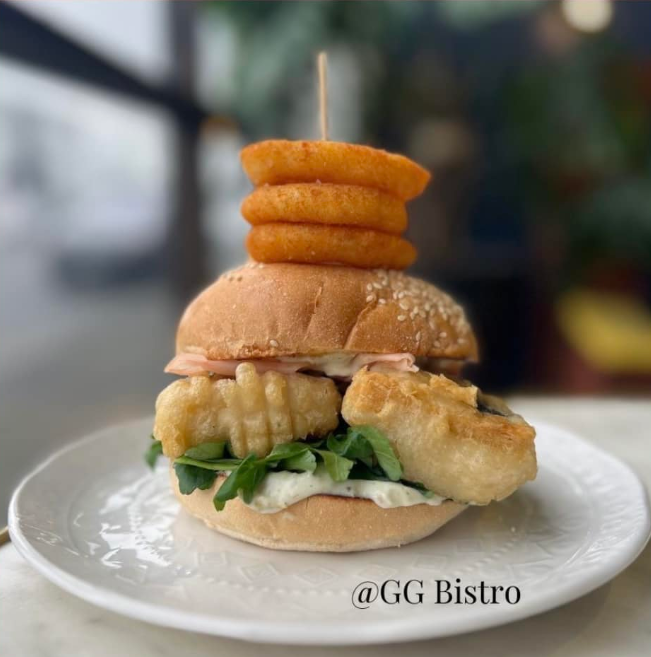New Zealand plant-based meat company Grater Goods has released its first alt seafood product — lox made from carrots.
According to the company, the lox product is made with locally sourced carrots and marinated in seaweed with dill and liquid smoke to imitate both the look and taste of salmon.
The lox is launching in New Zealand across Foodstuffs South Island, FreshChoice, Moore Wilson, and Supervalue.
Founded in 2018 by Kiwi musician Flip Grater, Grater Goods has been mainly focused on alternative deli meats and charcuterie products, with Grater saying the company uses a similar process to the Seitan technique invented by Buddhist monks to create its products.
Grater Goods claims to have achieved a turnover of over $1 million in sales. In a 2023 interview, Grater said that the company aims to expand to Australia after making the “most of the opportunity” in New Zealand.


Grater Goods Carrot Lox. Images via LinkedIn.
Grater Good launches ‘Dolphin Burger’ to raise awareness
As part of a campaign to draw awareness to New Zealand’s endangered dolphin species, Grater Foods also recently launched a plant-based ‘Dolphin Burger’. The company says that $5 from every burger purchased at Grater Goods Bistro will be donated to New Zealand Whale & Dolphin Trust.
The company says the burger consists of a piece of “beer-battered ‘dolphin,’ preserved lemon and kawakawa tartare, manuka smoked pickled ginger and fresh watercress on a sesame seed bun.”

Grater said, “We started saying to each other, if we’re making faux meat anyway, why limit our options to animals people generally eat?”
“Essentially we’ve imagined the dolphin meat a little more fish-like than it would actually be,” said Grater Goods head chef Peter Franks. “We use local seaweed and brined tofu to create our dolphin fritter and the result is super delicious, as well as being a good talking point.”
The campaign has received mostly positive feedback on social media with netizens praising it as clever, though some have questioned the use of the word ‘dolphin’ in the naming.
Launched on 1 June, the burger will run for three months.
A recently released report from GFI, global seafood production is projected to grow by 14% from 2020 to 2030, raising the threat to the ocean, which in turn impacts the environment along with marine biodiversity. Meanwhile, the paper notes that plant-based seafood has a greenhouse gas (GHG) footprint one-third less than conventionally farmed fish and three-quarters less than farmed crustaceans.
Plant-based investment in NZ
Grater Foods launched a Series A funding round in early 2023 with the goal of raising NZ $1.5 million. As of the closing of the round, the company had only raised NZ $395,400.

Grater has been vocal about the state of plant-based investment in NZ, describing investors in a recent op-ed in The Press as having limited understanding of the FMCG industry and a preference for male founders.
Grater’s comments echo those of Shama Sukul Lee, founder of recently shuttered NZ plant-based start-up Sunfed, who said that VCs that had expected fast returns had eventually discovered that manufacturing was “a lot more complex” than other sectors in their portfolio.
Grater also criticised the NZ government as giving proportionately more support to “…industries like dairy, coal and aquaculture instead of the sectors that are aligned with our collective sustainability goals.”
To stay up-to-date on the latest industry headlines, sign up to Future Alternative’s enewsletter.


